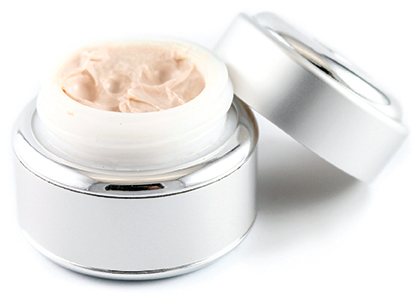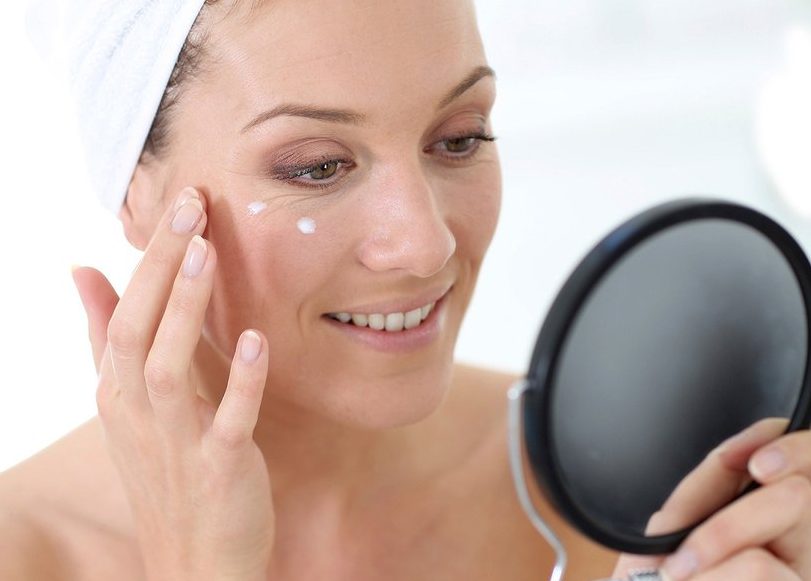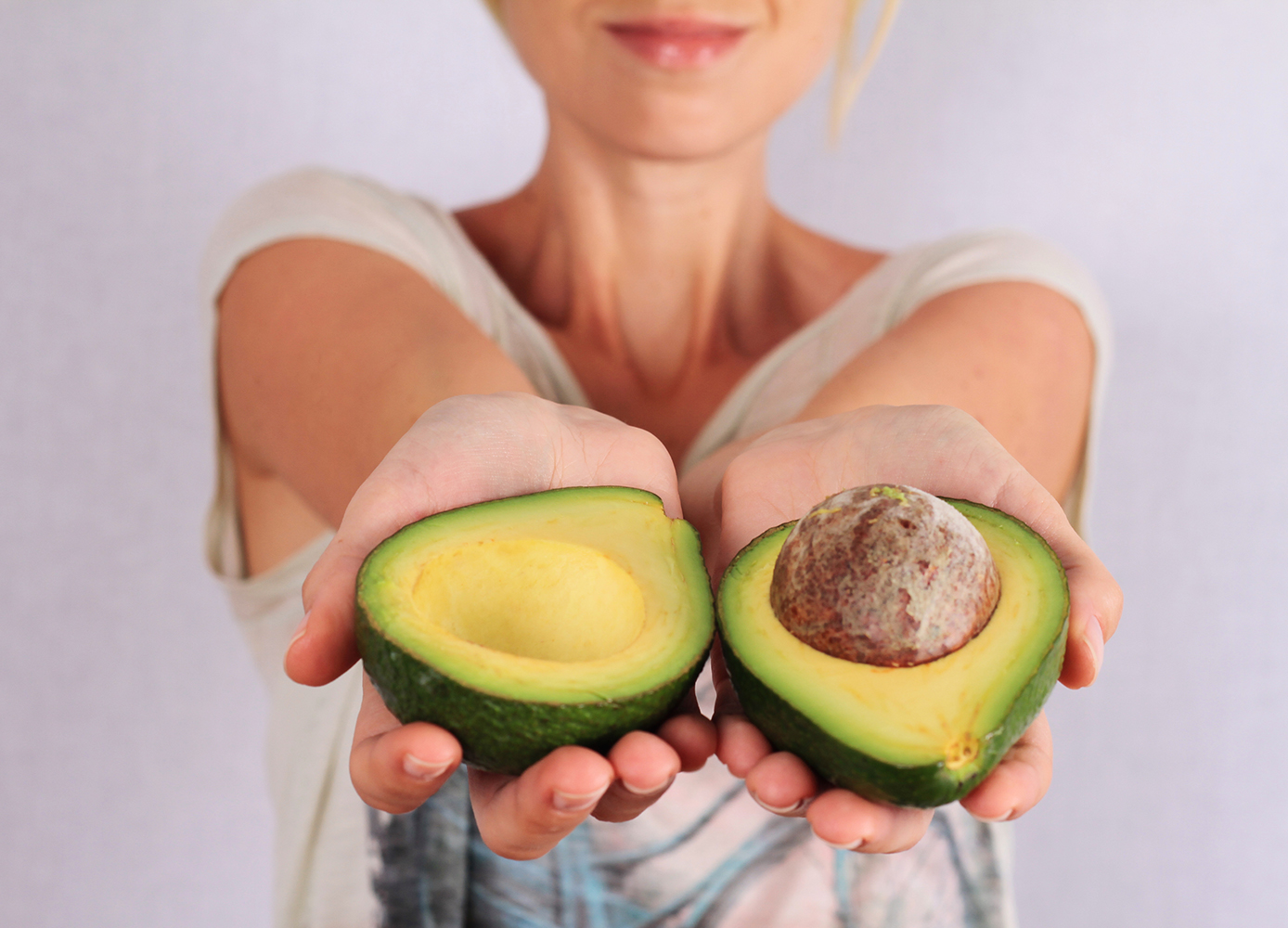These skin-care ingredients do what they’re supposed to
By Lola Augustine Brown
Photo: Fotolia/Goodluz.
Beauty companies are always searching for the next great anti-aging ingredient that will help turn back time by erasing fine lines and giving us glowing, youthful skin. One day we hear that a given plant extract has amazing properties and the next, the oil of a rare fruit from a far-off country is the essential add-in to face creams and lotions.
A lot of this can sound like hocus-pocus.
“It can be difficult to wade through the hype to find the products that give you real results,” says Tim MacPhee, beauty brand development manager for Mills Department Store in Halifax, “but there are products containing ingredients that are proven to be anti-aging and that can make a real difference to your skin.”
When you’re shopping for anti-aging skin care, prices can approach ridiculous heights, but fortunately the marketplace offers a lot of choice—from high-end brands to more moderately priced options. MacPhee advises checking labels to determine the strength of the anti-aging ingredients in a product you’re considering and how much of the ingredient list is made up of fillers and parabens instead of stuff that’s working on your skin.
“Choose as clean a product as you can,” MacPhee says, “and bear in mind that going for a cheaper product may be a false economy, as you’re going to need to use far less of a product that’s highly effective. So yes, a product might contain the active ingredient touted on the packaging, but perhaps not enough to be useful.”
Here are some of the most effective anti-aging ingredients that you’ll find in beauty products these days, as well as explanations of what they do for your skin.
Natural Exfoliators

Photo: iStock/MaElena1.
Fruit and vegetable extracts have been big in skin care for years, and there’s one big reason why: fruit contains alpha-hydroxy acid (sometimes listed as AHA, glycolic acid, or malic acid) and vegetables contain beta-hydroxy acid (BHA or salicylic acid), both of which are organic acids that are fantastic chemical exfoliants.
AHAs work on the surface layer of skin to eat away at dead cells and give you a glowing complexion, while BHAs provide a deeper level of exfoliation and are sometimes used in products formulated for those with acne or hormonal breakouts. These acids also help stimulate the skin to produce more collagen, making it plumper and more youthful-looking.
Chemical exfoliants are kinder to skin than are traditional grainy scrubs, as the latter can scratch the skin, doing more harm than good. Some products have higher concentrations of fruit and/or vegetable acids than others; you’ll find the highest concentrations in spa treatments and prescription-strength creams from a dermatologist. These ingredients are very effective, but note that when you use products containing them, it’s important to use sunscreen every day because they can make your skin extra-sensitive to the sun.
Antioxidants
Many products tout the benefits of vitamin C and various other antioxidants from sources such as green tea, pomegranate, and licorice. When the skin is exposed to harmful UV rays or other environmental nasties such as pollution, the body produces free radicals—molecules that attack elastin and collagen, ultimately aging the skin. Antioxidants penetrate the skin and stop free radicals from causing that damage. They can also help stimulate collagen production and cellular repair.
Retinol: An A+ Ingredient
The vitamin A derivative retinol is a superstar performer that exfoliates in the same way that AHAs and BHAs do, but also makes cells reproduce faster, stimulating them to repair damage, and helps increase circulation under the skin, making your skin look healthier.
When you use products containing retinol, it’s normal to feel a tingling sensation as it gets to work on your skin, but you must be careful with the delicate skin around your eyes, as using some retinol creams there may cause redness. MacPhee advises using retinol products at night because they are photosensitive and can react from the sun.
Widely considered the ultimate anti-aging skin-care ingredient, retinol is in many of the products on the shelves of your local drugstore. You’ll likely see a difference in the condition of your skin once you start using a product with retinol. You can also talk to your doctor or dermatologist about prescription-strength creams that are even more effective.
Peptides
Found in plant extracts, peptides are proteins that penetrate the skin and communicate with the cells to tell them to behave in certain ways. Some peptides instruct cells to produce more collagen or to alleviate redness, and some are included in skin-care products to act as a delivery system that gets other anti-aging ingredients to a place where they can be most useful.
Hyaluronic Acid: The Super-Moisturizer
Hyaluronic acid occurs naturally in lots of different places in the body, from the eyeballs to cartilage. In the skin, hyaluronic acid is responsible for retaining moisture. As we age, it’s something that we naturally lose, unfortunately—a loss that contributes to dry skin and a loss of elasticity.
You may already know that hyaluronic acid is used in injectable fillers (as used by aging Hollywood stars to plump up their skin), but you needn’t do anything that drastic or expensive—hyaluronic acid is also used in moisturizers because it’s a great thirst-quencher for your skin, helping it stay smooth and soft.
Lighteners
There are lots of very effective lightening ingredients that you can use to combat those dark spots caused by sun damage; these include hydroquinone and vitamin B extracts.
Jane Daly, an Ottawa-based beauty guru, is a big fan of creams with these ingredients for dealing with not only sun damage but also the redness that comes from hormonal acne. “Lighteners can pretty much erase these dark spots, making your skin look much better and blemish-free,” she says, admitting that she also gets great results by dabbing lightener onto a blemish before it can leave that red mark on her skin.
Sunscreen
While not technically an anti-aging ingredient, sunscreen is the best tool available for preventing further sun damage—the number one thing that ages the skin.
MacPhee says that if you’re not outdoors all day, the sunscreen contained in your moisturizer, day cream, or foundation (usually SPF 15) may be enough to keep your skin safe, but if you’re doing any kind of activity that keeps you outside for long periods of time, you should be applying a sunscreen of SPF 50 to protect yourself. There are light formulations that will work well with the rest of your skin-care regime.





